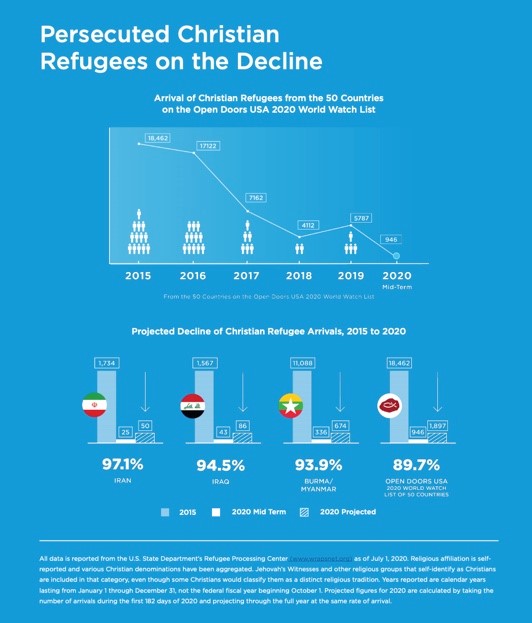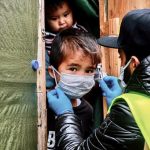Closed Doors
July 14, 2020
This is an excerpt from the “Closed Doors: Persecuted Christians and the U.S. Refugee Resettlement and Asylum Processes” report from Open Doors and World Relief.
You can view the full report here.
Nearly eighty million people across the globe are victims of forced displacement. 40 percent of them are children, and 80 percent come from countries struggling with food insecurity and malnutrition. Twenty-six million meet the formal definition of a refugee, having fled their countries because of a well-founded fear of persecution based on race, religion, political opinion, national origin, or membership in a particular social group. War, trauma and other major social and economic disruptions drive millions more to migrate in search of better work opportunities and a safer place to call home.
A significant share of refugees worldwide are persecuted particularly because of their religion, including many who are persecuted for their Christian faith. Globally, more than 260 million Christians face high levels of persecution for their faith. When individuals facing violence and pressure at home determine it is no longer safe to remain, some make the difficult decision to migrate – hoping and praying to find a safe country that will welcome them.
The United States has long set the standard for the global agenda on refugees and asylum seekers. Yet recent shifts in U.S. policy reveal that it is no longer the safe haven for displaced persons that it once was: The “Golden Door” that Emma Lazarus poetically described as the gateway to safety and liberty for those “yearning to breathe free” has largely closed shut in recent years.
“The Coronavirus pandemic has only aggravated existing conditions of hardship for the world’s refugees and other displaced people. COVID-19 disproportionately affects the poor and underprivileged, and many of the world’s densely packed and underfunded refugee camps are ill-equipped to handle the medical needs of the many refugees they house. With 134 refugee-hosting countries reporting local transmission of COVID-19, the pandemic is an especially dangerous threat to displaced persons across the globe. But as many of
the world’s wealthier countries battle the pandemic domestically and tighten foreign travel restrictions, the political climate has become unfavorable to displaced people who desperately need global aid, exacerbating trends that began even before the global health crisis.
While the United States has made religious freedom a priority of domestic and foreign policy, religious persecution continues to drive the displacement of Christians. The administration’s commitment to religious freedom necessitates an equally enduring responsibility toward refugees and asylum seekers. It is the time for global leaders to recognize the dire situation for displaced persons, including persecuted Christians, and take action. And it is vital that American Christians leverage their voices on behalf of the most vulnerable, defending the human rights of displaced people, including brothers and sisters in Christ.







